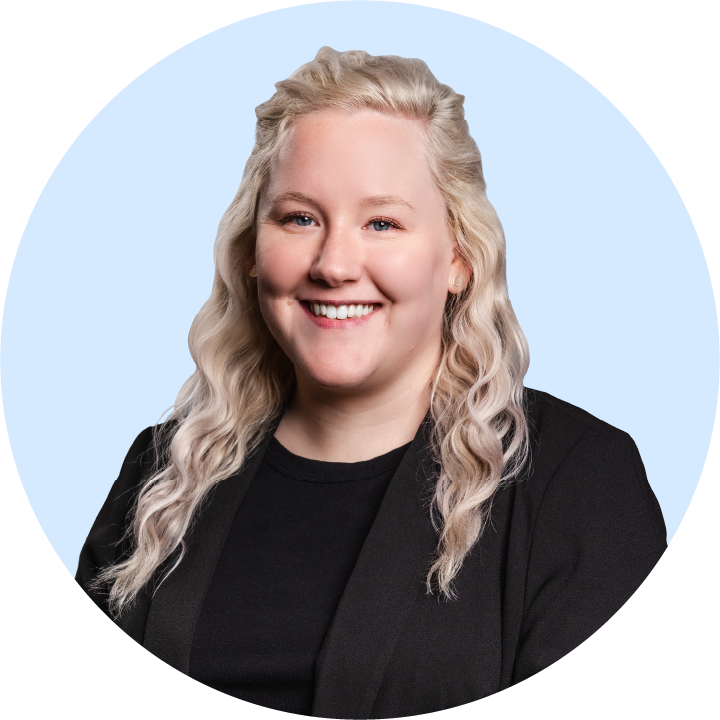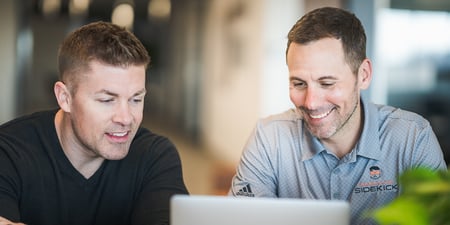Franchising isn’t what it used to be – and that’s a good thing.
In 2024, we took on a bold mission: to create the most comprehensive, data-driven look at modern franchise ownership ever compiled. The result is the first edition of “The Best Damn Franchise Report” – a groundbreaking analysis built from the largest consolidated franchise buyer database in the industry.
Drawing insights from more than 140,000 candidates, 73,000 tracked potential buyers and 3,500+ Franchise Fit Survey responses, this report goes deeper than any other source to reveal who today’s franchise buyers are, what they want and how the industry is evolving to meet them.
This isn’t just a collection of stats – it’s the story of a new era in franchising, where entrepreneurial ambition meets strategic caution, and the dream of ownership is pursued with sophistication, data and heart.
The state of modern franchising
The numbers tell a clear story: franchising is growing stronger, smarter and more resilient than ever.
Even amid a challenging economy, the franchise sector outperformed expectations – expanding 2.2% in 2024, outpacing the broader U.S. economy and generating nearly $894 billion in total output. Growth was driven largely by personal services and quick-service restaurants, reflecting what modern consumers value most: convenience, trust and everyday essentials.
But behind those headline figures lies something deeper – a fundamental shift in who’s buying, how they’re investing and what they expect from business ownership.
The 2024 data paints a vivid picture of an evolving franchise landscape – one where success depends on understanding the psychology of the modern buyer, not just the economics of the deal.
Meet the modern franchise buyer
So, who exactly is fueling this new era of growth? The data shows a clear shift in the profile – and psychology – of today’s franchise buyer.
At an average age of 43, these are seasoned professionals, not wide-eyed entrepreneurs. They’ve built careers, families and financial stability – and now, they’re channeling that experience into ownership. But unlike the franchise buyers of decades past, today’s candidates are more analytical, lifestyle-focused and risk-aware.
They’re not leaving their jobs out of desperation. They’re making deliberate moves toward independence.
- 72% of buyers are still working W-2 jobs as they explore ownership – proving franchise investing is a planned transition, not a leap of faith.
- 67% of buyers bring prior business or leadership experience to the table.
- And while 82% are working with a franchise advisor for the first time, they arrive informed, having done their own deep research before seeking expert guidance.
In other words, the modern buyer is not looking to “buy a franchise.” They’re looking to build a future – one that aligns with their skills, finances and the lifestyle they envision.
This evolution in mindset is reshaping how brands attract, engage and convert potential buyers. And it’s why understanding buyer psychology – not just demographics – is now the key to success in franchise development.
Freedom, family and fortune: The 3 personas powering modern franchising
Behind every franchise deal is a human story – and our data shows that three buyer types are driving the majority of franchise growth today. Each persona reflects a different motivation for ownership, a unique relationship with risk and a distinct path to success.
Understanding who’s in front of you isn’t just good marketing – it’s the foundation of smarter franchise development.
Freedom Freddie: The career shifter
Freedom Freddie represents the dreamers turned doers – the people ready to walk away from the 9-5 grind and build something of their own. They crave flexibility, autonomy and purpose, but they also want stability and a proven system to help them get there.
Most are new to franchising (43% fall into level one understanding), and they’re motivated by more time, more control and the chance to secure their family’s financial future. Freedom Freddie converts well when given clarity, reassurance and a roadmap to replace their income safely.
Pro tip for brands: Position your franchise as an achievable lifestyle shift, not a high-stakes gamble. They don’t need hype – they need a guide.
Side Business Sam: The strategic builder
Side Business Sam is the multitasking professional juggling career, family and a long-term vision for financial freedom. They’re risk-conscious but forward-thinking, motivated by diversification and legacy-building rather than escape.
Often in their 30s and 40s, they see franchising as a smart addition to their existing life, not a full replacement. Interestingly, while they represent a smaller share of leads, they close at one of the highest rates (9.2%) once they engage with a brand.
Pro tip for brands: Speak to scalability and flexibility. Sam values structure and proof over passion, and they’ll respond to efficiency, systems and a clear path to passive growth.
Portfolio Pete: The empire builder
Portfolio Pete is the power player – an established entrepreneur or investor who already owns multiple businesses and is looking to expand intelligently. They think in units, not single locations, averaging more than two territories per deal and bringing serious financial firepower to the table.
But Pete’s biggest asset is also his biggest barrier: skepticism. He’s seen it all and expects sharp insights, real ROI and partners who respect his time and expertise.
Pro tip for brands: Skip the sales pitch and show the data. Pete doesn’t want inspiration, he wants a strong business case, operational depth and scalability.
Together, these three personas define the modern franchise landscape. Recognizing who you’re speaking to at each stage of the journey can transform how brands qualify leads, build trust and close smarter deals.
Quality over quantity: The new franchise formula
If 2024 taught the industry anything, it’s that more leads don’t always mean more deals.
Our data tracked 73,000 potential buyers from initial interest to deal closure – revealing a clear trend: while lead generation jumped to 53.7% and total deals grew 49.5%, overall conversion rates declined from 12.6% to 10.8%.
At first glance, that dip might seem like a warning sign. But in reality, it’s proof of a maturing market – one that’s learning to value fit over volume.
Brands are no longer chasing every lead that lands in their inbox. They’re raising qualification standards, tightening their funnels and prioritizing serious, best-fit candidates who are ready to invest.
The payoff?
- The lead-to-booked rate dropped from 20.3% to 16.2% by design, creating higher-quality pipelines.
- Seven out of 10 buyers who reach Confirmation Day become franchise owners – showing that when prospects make it to the finish line, they’re highly committed.
- The average deal size increased to 2.5 units, proving buyers are thinking like long-term investors, not one-and-done owners.
This shift marks a new era of franchise development – one defined by efficiency, intentionality and confidence. The best teams aren’t trying to talk to more people, they’re focused on talking to the right ones.
Insight for franchisors: Raising your standards doesn’t slow growth – it accelerates sustainable success. The data shows that the more selective the pipeline, the stronger the conversions.
The rise of the service economy
If the 2024 data makes one thing clear, it’s this: the service-based franchise brands are having a moment.
A remarkable 57% of buyers now prefer business-to-consumer service models – think roofing, lawn care and window services – over traditional brick-and-mortar or retail concepts. This marks a major shift in how people want to work, live and build wealth.
Why the surge? Because service-based businesses offer what modern buyers crave most:
- Lower startup costs and faster paths to profitability
- Flexible ownership models, from mobile to executive ownership
- Lifestyle alignment, allowing owners to build freedom into their schedules
Today’s buyers aren’t just purchasing a business – they’re purchasing a version of their life. The post-pandemic mindset has elevated time, autonomy and simplicity to the top of the priority list. And service-based brands are meeting that demand.
It’s not just a market trend – it’s a mindset shift. Franchising is no longer just about financial gain, it’s about personal alignment and lifestyle design.
Insight for franchisors: If your brand can deliver freedom, flexibility and community impact, you’re speaking the new language of business owners.
Bridging the “say-do” gap: When preference meets reality
One of the most fascinating findings from “The Best Damn Franchise Report” lies in the difference between what buyers say they want … and what they actually do when it’s time to sign.
Our Franchise Fit Survey revealed that a large percentage of candidates express interest in home-based or low-overhead concepts – businesses they can run with minimal staff or from the comfort of their home office. It sounds ideal: freedom, flexibility, low risk.
But when it comes time to invest, actual purchases skew heavily toward retail and office-based models.
This “say–do gap” highlights an essential truth about human decision-making: logic and comfort rarely align perfectly. Buyers may be drawn to the idea of simplicity, but when real money enters the equation, they often choose what feels more tangible, visible or proven.
For franchise brands and advisors, this insight is gold. It’s not about changing what buyers want – it’s about helping them bridge the gap between their aspirations and their comfort zones. When handled with empathy and data-driven guidance, this moment of tension can become the turning point that moves a hesitant prospect toward confident action.
Insight for franchisors: Don’t just sell the concept – sell the clarity. Buyers need to see how your model works in the real world, not just on paper.
Franchising’s future: Smarter, safer, more strategic
If one message stands out across every insight from our research, it’s this: today’s franchise buyers crave simplicity, safety and guidance.
They’re not chasing quick wins or high-risk opportunities. They’re building stable, scalable futures – and they’re doing it with intention. The days of impulsive investing are over. The modern buyer wants clarity over complexity and partnership over pressure.
That means the brands and advisors who will thrive in the next chapter of franchising are those who lead with transparency, process and trust.
Buyers want to know:
- Is this business model proven and adaptable?
- Can I see a path to ROI within 3 to 4 years?
- Will I have the support I need to grow beyond launch day?
When those answers come with confidence, conversions follow. In fact, our data proves that when candidates feel guided rather than sold, their conversion and satisfaction rates soar – and their long-term outcomes improve.
The modern franchise movement isn’t about selling dreams, it’s about helping people make confident, informed decisions that align with their life goals.
Insight for franchisors: Safety isn’t the absence of risk – it’s the presence of guidance. The stronger your process, the faster trust forms.
How Franchise Sidekick powers confident ownership
In a world where franchise options are endless and information is overwhelming, clarity is everything. That’s why Sidekick exists – to make franchising simpler, safer and more successful for every kind of entrepreneur.
We’ve guided thousands of buyers through the franchise process, and now, with insights from over 140,000 candidate journeys, we’re using data to make those decisions even smarter.
Our mission is simple: to help you find the right fit, avoid costly missteps and step into business ownership with confidence.
Whether you’re a first-time buyer exploring your options or an experienced investor building a portfolio, we give you the tools, insights and guidance to make the smartest move for your future.
Because behind every great franchise story is someone who made the right choice – and we’re here to help you make yours. Download the full report for a deeper dive into this data and see how the smartest franchise buyers are building businesses that last.




